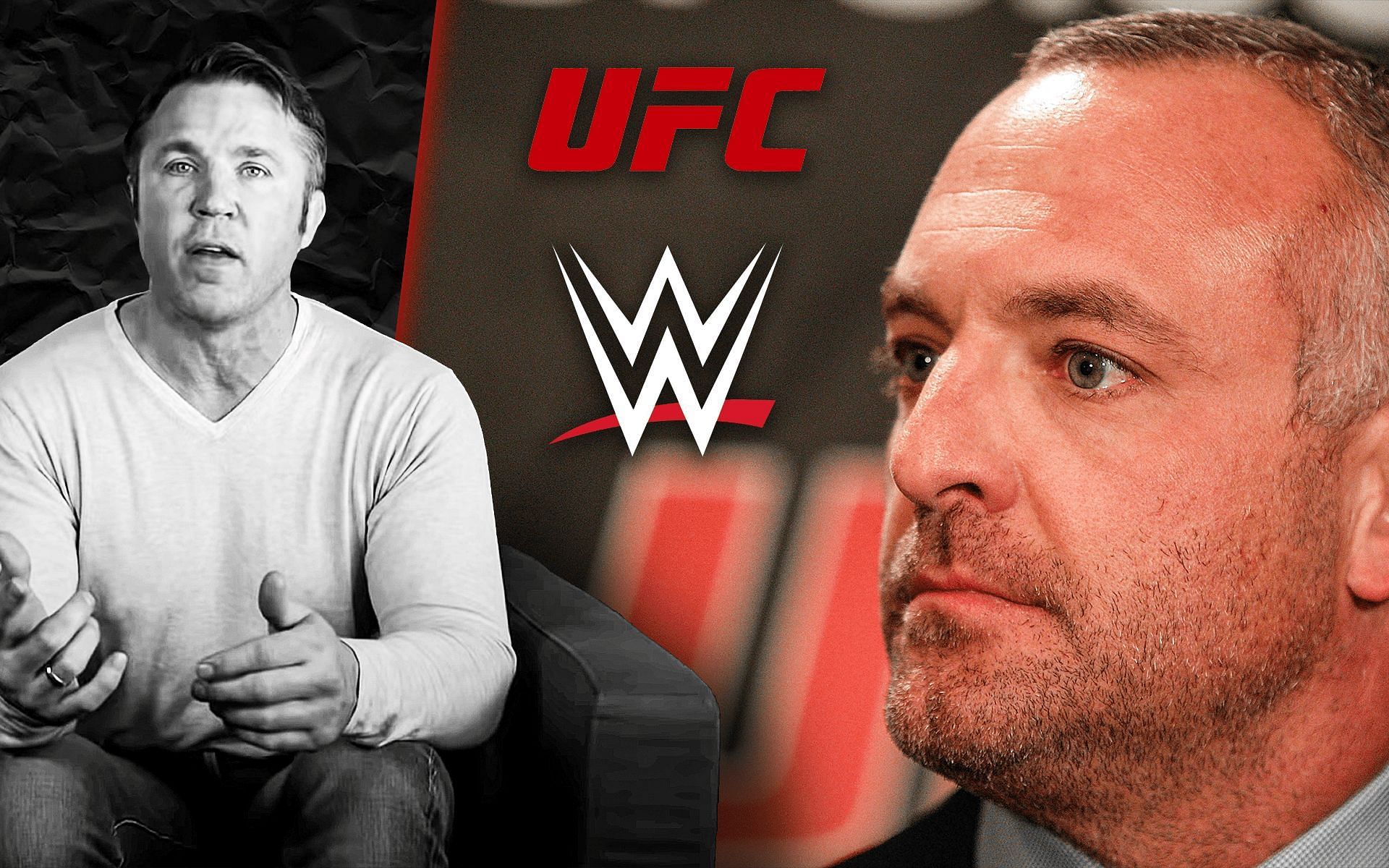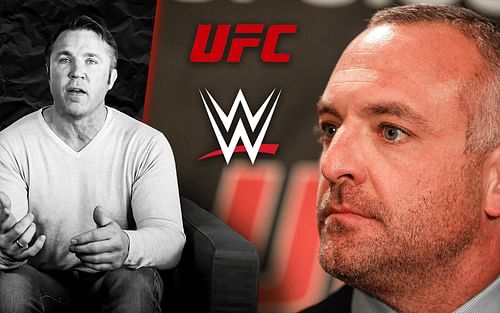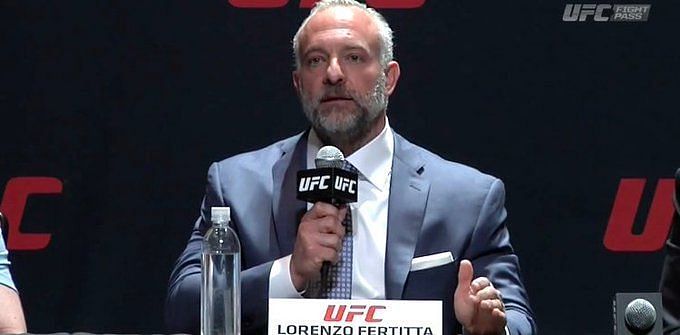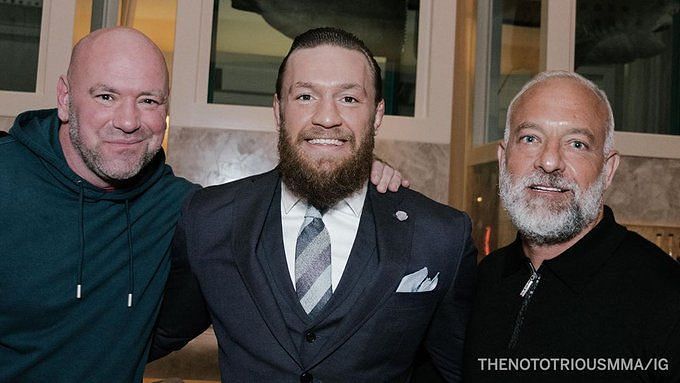
"The model that we chose to follow was the WWE"- Chael Sonnen reveals what Lorenzo Fertitta said in an interview about the UFC's way of doing business

Chael Sonnen recently recalled what Lorenzo Fertitta said about the UFC's business model. According to Sonnen, the former UFC CEO confessed to taking inspiration from the WWE's way of doing business.
Fertitta reportedly explored various sports franchises and their business models before sticking with the WWE's. Sonnen recently said on his YouTube channel:
"Lorenzo Fertitta, when CEO of the UFC, did an interview and Lorenzo said, 'We searched the earth, we looked into every sports franchise business model that existed all the way up to the New York Yankees. And the model that we chose to follow was that of the WWE.'"
Watch Chael Sonnen weigh in on the UFC business model below:
Lorenzo Fertitta, co-owner of the Station Casinos in Las Vegas, bought the Ultimate Fighting Championship for $2 million with his brother, Frank, in 2001. The Fertitta brothers, along with cohort Dana White, built the nearly bankrupt company into a global brand. They made 2000 times their initial investment while selling it to an investment group led by WME/IMG for $4 billion in 2016.
What Lorenzo Fertitta learned from the WWE
In 2005, Lorenzo Fertitta considered selling his stake in the UFC as the company was burning a massive hole in his wallet. That was until Stephan Bonnar and Forrest Griffin gave the UFC a glimmer of hope, putting on a sensational bout in The Ultimate Fighter season 1 finale. The Bonnar vs. Griffin fight is widely regarded as a pivotal turning point in the promotion's fortunes.
After the success of TUF 1, the UFC finally had a significant fan base behind them. Fertitta claims to have borrowed from the WWE's business model in order to sell pay-per-views on television to attract the media and fans. The former UFC CEO learned from Vince McMohan and Co. about the importance of building storylines to sell pay-per-views.
Fertitta said in a speech at 'The Leaders Sport Summit' in London in 2014:
"When we started, we had no traditional free press. Nobody was covering us, no one took us seriously as a sport. Therefore we had to turn to the WWE model which was, they have Monday Night Raw, Thursday Night Smackdown, which were television shows that told a story, and the story was trying to convince you to transact on Sunday night on PPV."
He added:
"So we said look, it's going to take awhile for the free press to cover us, we don't have that long to wait, therefore we must buy our way on TV, get on that free-to-air format, tell our story, let the fans know who these fighters are and convince the fans to buy the PPV on Saturday night. So looking at their business plan was the key."

